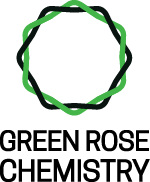What is LCA?
Life cycle assessment, or LCA, puts a number on how environmentally friendly something is throughout its entire life cycle. It can also apply to products, processes, and even companies. LCA targets one specific impact, such as global warming potential, at a time. The environmental impact you choose to study in your LCA will depend on your industry, targets, and consumer demands.
There are typically three detail levels you can pay for:
- Conceptual – very basic assessment; the cheapest option.
- Simplified – generic; a middle ground.
- Detailed – full and specific; the most expensive.
Life cycle check analysis (LCC) is on a similar vein but has slight differences. It gives what is essentially a ‘greenness’ score on various parts of the life cycle. It runs from 1-10, with 10 being the best. This assessment of sheep’s wool as an alternative to mineral wool insulation, which we mentioned in our article on healthy building, is a great example of both LCA and LCC. It shows how one stage of the life cycle can really tip the scales, and why it’s so important to break it down into those stages.

Stages of a product’s life cycle
The full life cycle of a product is usually broken down into four major sections:
- Collection or extraction of raw materials
- Product manufacturing, packaging, and distribution
- Use and maintenance
- End-of-life (recycling or disposal)
Each stage has its impacts assessed separately for both LCA and LCC to provide insight into what may be problematic.
Standards for LCA
Standards are important for consistency, and the reliability of results. They allow different LCA practitioners to compare their work fairly.
There are two main standards in place for life cycle assessment:
- ISO 14040 gives the principles and framework of LCA and is primarily for managerial audiences
- ISO 14044 details the requirements and guidelines for performing the LCA, such as sensitivity assessments and external validation of results
If you’re getting an LCA in the UK, you should expect the practitioner to conform to these standards, and may want to ask about it when interviewing candidates.
Why would you want an LCA?
It may increase customer demand for your products. Commercial buyers often want to know the footprint of a product, and it can help customers make decisions about which product to choose.
Buyers are now wary of greenwashing (misleading customers into believing that a product is more environmentally friendly than it truly is) and a reliable LCA from a third party can help prove that your product is actually sustainable, at least within the scope of the assessment.
It’s easy to be pulled in by terms like “biobased” because they’re usually a good thing, but it doesn’t necessarily mean it’s greener or more sustainable. Some biobased chemicals and products may have greater environmental costs than their originals, despite their material renewability. Likewise, “natural” and “organic” aren’t inherently eco-friendly – they quite often are, but it isn’t a guarantee. Savvy consumers, especially businesses, will want quantitative proof that your product or process is greener than the competition.
Getting an LCA from a reputable third party is a good way to show you’re taking Corporate Social Responsibility seriously, and wanting to lead by example in the business world. Assessing the materials you use can also help you make decisions on sustainability – it may give you the insight you need to confidently switch to an alternative.
In some countries, companies are required to disclose environmental data for products used in public projects. Life cycle assessment is an example of how this can be done.
Where would you get an LCA?
Some large companies perform LCAs internally, but going to a third party can improve its credibility. Some customers will specifically request LCAs from third parties.
Here is a short list of companies you could contact regarding LCA services:
NNFCC – Established by the UK government.
EcoChain – Based in Amsterdam but operates in over 20 countries.
EcoAct – Acts in France, UK, Spain, USA, Turkey, and Kenya.
Valpak – Operates in England and Wales.
Alternatively, you can try OpenLCA, an open-source software which is free to download. It may be a good option if you just want to dip your toes into the water with LCA, but we wouldn’t recommend doing a full assessment on your own–it’s definitely a skill that takes practice!

